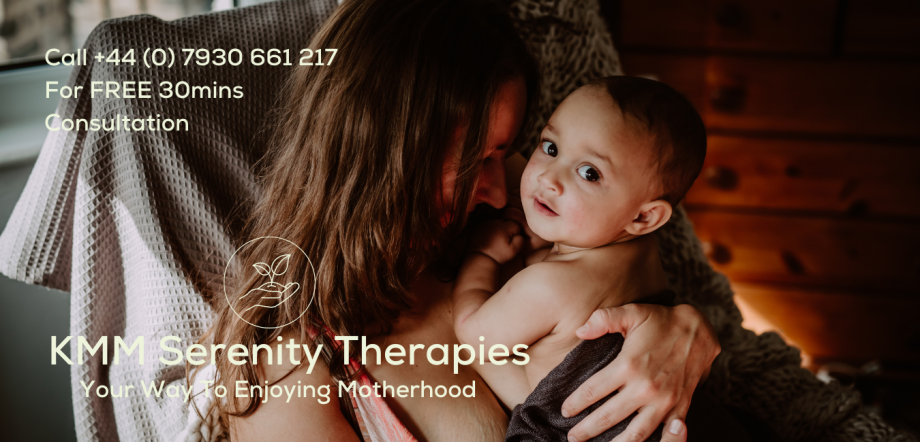What you need to know about the 4th trimester
There is a lot packed in the first three months postpartum and so it is often referred to as the 4th trimester. I feel that when we understand what is likely to happen and why, it equips us with an ability to deal with whatever arises and empowers us to make decisions that are taking into consideration the well being of the whole family. Without this understanding, we can easily get disheartened by events that are natural, anxious about things beyond are control or feel hurt by something that is not aimed at us personally at all. I shall expand.
Human babies are born before they are fully developed to allow for their rather big heads containing pretty intelligent brain to safely pass through the birth canal, therefore a lot of developing that happens in utero for other species, is happening in the first six to nine months postpartum, the biggest chunk of it in the first three months. That’s when their digestive system is developing and growing to be ready for solids that will arrive few months later, the nervous system is rapidly forming a lot of pathways, connecting the whole body, learning to ,move and coordinate as well as socialise, the lungs are still growing and getting used to breathing in air, hearing, eye sight, smell and taste organs are all taking in the environment and growing in sensitivity. There is of course also a lot of physical growth of the skeletal and muscular system. That in itself is pretty full on, a lot of this growing can be uncomfortable or even painful, causing baby to cry for no apparent reason.
We evolved to carry our babies and to sleep with them lying on our chests, the reasons for this are that proximity of our bodies, especially skin to skin (or with just a thin layer between) helps to regulate the baby’s breathing, body temperature and the circulatory system, it also provides a sense of safety and comfort, reducing stress, which can interfere with healthy development if prolonged and/or repeated. The upright position when carried helps to prevent reflux and strengthens the neck, back and core muscles, so there is no need for tummy time if your baby is not fond of it. Contact sleeping tends to lead to longer sleeps and because of the pressure against their belly, it often provides pain relief and there is less of a chance for flat head. We also evolved to raise our babies in a community, so babies would have slept on adults who were awake at the time, it is not a safe practice if you are likely to fall asleep with a baby on you, so make sure to put baby down if you are feeling sleepy. Carrying also recreates to some extent the feeling of being in utero. It feels, safe and cosy to have their head on your heart and to feel you breath rising your chest, as well as the sway of your walk. Stretchy wraps are best for newborns as they keep them nice and secure and have no hard parts.
For mothers there are a lot of changes too of course. Apart from the obvious getting used to being a parent and looking after a newborn baby, there are many physiological and psychological processes happening that can impact on our well being. The uterus takes few weeks to shrink back to its pre baby size, while that is happening, there is a lot of bleeding and hormonal tornados within. All those tendons and ligaments that got stretched to allow labour are now coming back to normal, very slowly, which can cause aches and pains, trapped nerves, difficulty walking or moving in general and a feeling of weakness. Until your abdominal muscles reconnect again and the pelvic floor start to engage again (for few women it never happens and they need treatment), you are likely to use your lower back to compensate, which can cause injuries. Also your organs will be rearranging to get back to their rightful places, which can cause abdominal cramps. The hormonal cocktail can cause mood changes and even feelings of anxiety and depression. If you had to take antibiotics during or after birth, your gut flora is probably devastated and needs replenishing with probiotics to avoid digestive issues. Breastfeeding is great for many reasons and I have expanded on it in one of my previous blogs, but it is not always an easy ride and can bring a lot of discomfort or even pain. As baby needs feeding around the clock in the first few months, sleep is hard to come by too. Babies also often have periods of crying that there is no ‘cure’ for and that is especially hard when we are tired and feel helpless.
There is also the birth of the mother, the becoming of a parent, that can be a challenge for our pre-existing sense of identity, especially if it was tied to external sources like a career, our romantic relationship or an activity that is hard to practice with a baby (sport, clubbing, charity work etc). Having a baby can put a strain on our relationships with our partner, family and friends for various reasons or it can make those bonds stronger.
All this is a reason why are nor meant to this alone. We are supposed to have help and support, someone who takes care of us while we take care of the baby, someone who’ll look after baby in a way we would while we get a shower or a nap, someone who keeps an eye on our mental health and provides reassurance or advice when needed. The safe circle that most mothers used to have, slowly dissolved over the last two hundred years, which makes me very sad, as it ends up being us therapists picking up the pieces. However, we are where we are, so we need to learn how to do this tough gig with what we’ve got. We need to create our safe circles as best as we can. We must prioritise self care and I am not talking of having your nails done, nor having a shower, although those are great too. I am talking eating and drinking healthily to provide your body with what it needs to cope with all that is happening to it. I am saying you should prioritise rest and sleep. It is certainly more important than cleaning and polishing mirrors. I am hoping you will reach out and ask for help when you need it, whether it is asking a friend to help you with the laundry, an IBCLC to help with your breastfeeding, a GP to help with your pain or discomfort or asking your partner to massage your shoulders.
My hope is that all this will help you understand that there is a lot happening on all levels in the 4th trimester and that no one (especially you) should be expecting from you anything else but feeding you baby and yourself and keeping you both clean, while getting as much sleep as you can. Everything else can wait. Of course, it is more challenging of you have other children to look after and I suggest that you will definitely need help there, so if you literally have no one, do not hesitate to reach out to charities or children centres to get the help you are meant to have. If you struggle mentally, whether it is anxiety, depression, intrusive thought or anything else, make sure to speak to a GP or a therapist, so you can get help as soon as possible. There might not be a joy in every moment of motherhood, but there certainly is not meant to be constant suffering either. As Glennon Doyle says, we can do hard things, but we certainly don’t have to do them alone.



